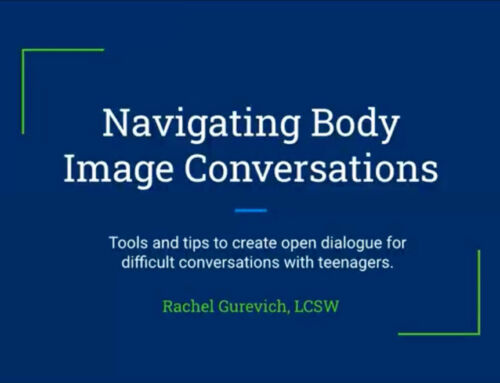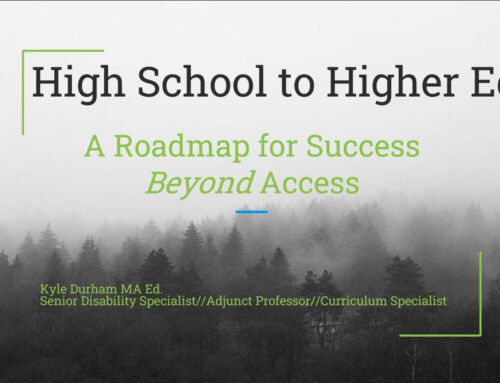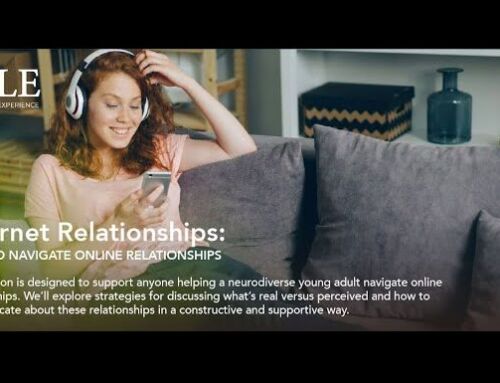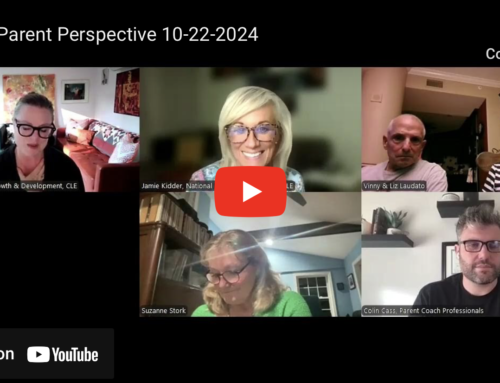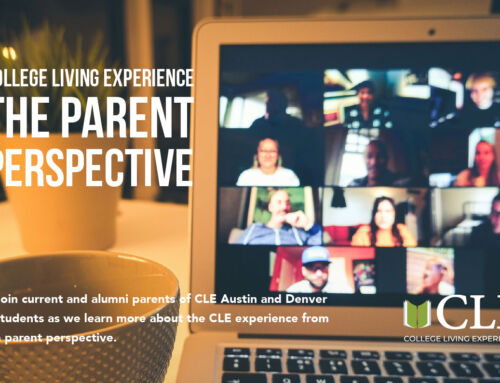By: Stephanie Deker
Embarking on college tours can be an exhilarating experience for both parents and their aspiring college students. For parents, a college tour is a great way to see the campus firsthand and learn about everything a university has to offer. For students, it’s the best way to learn how many on-campus options there are for pizza.
 However, for parents of neurodivergent students, these tours are about more than just campus aesthetics and academic programs. Tours are also about ensuring the college has the right support and understanding for their student’s unique needs.
However, for parents of neurodivergent students, these tours are about more than just campus aesthetics and academic programs. Tours are also about ensuring the college has the right support and understanding for their student’s unique needs.
To help you get the most helpful information possible, here’s a comprehensive guide on what you should be asking during college tours to ensure the best possible support for your student.
1. Dive Deep into Disability Services
“What specific services do you offer for neurodivergent students, especially those with [specific condition]?”
While most colleges offer disability services, it’s crucial to understand the depth and breadth of these services. Some institutions provide things like disability services offices, academic tutoring and counseling centers, while others do not.
From additional accommodations during exams to specialized study programs, it will help you and your student immensely to understand the available options before committing to a university.
It will also give you a clear picture of the college’s commitment to neurodivergent students.
2. Inquire About Tutoring
“Do you provide traditional academic tutoring, and if so, are the tutors students or degreed professionals?”
Supplemental support in a college environment is crucial for all students, more so for those who are neurodivergent. When evaluating the tutoring support, consider:
1. Duration of Support: How many hours a week is dedicated support available to your student? This can be pivotal during intense academic periods.
2. Caliber of Support: Who provides the support? Is it a fellow student or a professional with a degree?
3. Initiation of Support: Is it up to your student to initiate and seek out support, or is there a proactive system where the support personnel initiate assistance?
An important point to consider is the availability of tutors, especially during peak exam periods. In a traditional college setting, student tutors, being students themselves, could be swamped with their own work. This can lead to decreased availability precisely when students need them the most—especially around midterms and finals.
CLE typically provides scheduled weekly coaching, tailored around each student’s college and career schedules. This extensive support ensures that students are equipped to handle their academic demands with expertise at their fingertips.
And, while many college campuses offer peer-based tutoring, CLE stands out by ensuring all tutors are degreed professionals. This not only guarantees the quality of support but also ensures a broad range of subjects are covered, catering to each student’s unique academic needs.
While on-campus student tutoring can be beneficial, the comprehensive, professional, and proactive support system at CLE offers unparalleled advantages, especially for neurodivergent students seeking consistent and specialized assistance.
3. Delve into Faculty Training
“How are professors and staff trained to understand and accommodate neurodivergent students?”
A trained faculty can make all the difference in a neurodivergent student’s college experience. They’ll be more understanding of unique challenges and more accommodating to specific needs.
4. Understand the Documentation Process
“What documentation is required to access accommodations, and how can I view and access the same information on accommodations that my student does?”
 Navigating the documentation landscape for accommodations can vary across institutions. While some colleges may have an extensive list of required documentation, others may adopt a more flexible approach. It’s crucial to understand documentation requirements to ensure your child gets the necessary accommodations without unnecessary stress.
Navigating the documentation landscape for accommodations can vary across institutions. While some colleges may have an extensive list of required documentation, others may adopt a more flexible approach. It’s crucial to understand documentation requirements to ensure your child gets the necessary accommodations without unnecessary stress.
As highlighted in our article, “4 Tips to Help Neurodivergent Students Prepare for College,” you don’t need to wait before gathering any necessary documentation you may need to submit later on. For example, if your student is due for a psychoeducational evaluation, it’s beneficial to complete it early to ensure you’re well-prepared when submission time arrives.
Beyond the documentation, there’s a crucial aspect that’s often overlooked: parental insight into the accommodations their students receive. This insight isn’t just about staying informed; it’s an added layer of advocacy that parents can provide. That’s why it’s important to find out if the educational institution permits parents to engage with staff regarding their child’s accommodations.
At CLE, we recognize this need and act as a bridge. Through the Family Educational Rights and Privacy Act (FERPA), CLE facilitates this insight for parents. FERPA empowers parents with rights concerning their child’s educational records, ensuring transparency. While CLE’s approach isn’t to directly intervene, we passionately believe in coaching students while simultaneously offering parents the clarity they seek about their child’s educational journey.
5. Get a Feel for the Social Scene
“How do neurodivergent students find friends and engage in social activities; does the school organize inclusive social events that are integrated into the broader collegiate community?”
Academic excellence is, without a doubt, a top priority. However, a complete college experience goes beyond the confines of the classroom. It’s also about fostering relationships, understanding social dynamics and creating memories.
While clubs and peer groups offer platforms for interaction, they may not necessarily provide guidance on building lasting relationships. That’s why it’s so important to ask if the institution offers more than just platforms.
Do they provide guidance or instruction on forging friendships? Additionally, does the institution ensure that counselors responsible for students with disabilities take a holistic approach, ensuring students are not just academically successful but also socially integrated and thriving?
In the end, a well-rounded college experience is as much about personal growth and social connections as it is about academic achievement. Ensure your chosen institution recognizes and facilitates this.
6. Meet with a Disabilities Counselor
“Can we meet with a student disabilities services counselor who specializes in assisting neurodivergent students?”
Engaging with someone directly from the disabilities services office provides a depth of insight that may be overlooked during generalized campus tours. These specialized counselors are in place precisely to aid students and their families in navigating the unique challenges and opportunities of higher education for neurodivergent students.
It’s also essential to recognize the pivotal role parents play in modeling self-advocacy for their students.
One of the most empowering steps a parent can take is to accompany their student into the student disabilities services office. The physical act of entering that space, asking questions and understanding available resources can demystify the process for the student.
As we like to say at CLE: “If your student won’t walk into this office with you, they won’t walk into it without you.” Going into the office with your student embodies the essence of advocacy and empowerment, showing your student not just the importance of seeking support—but also how to do it.
7. Feedback Mechanisms
“How does the college collect and act upon feedback regarding support for neurodivergent students?”
Understanding the adaptive nature of a college’s support programs is as vital as knowing about the programs themselves. It’s crucial for parents to learn how these programs evolve based on feedback to ensure they consistently meet students’ needs.
A proactive college will not only collect feedback but also act upon it, signaling a genuine commitment to the continuous enhancement and improvement of support for its students. But the feedback loop shouldn’t be limited to broad program changes. On a micro level, do student disabilities services counselors document their sessions? And more importantly, are these notes available for parental review?
At CLE, our feedback process is meticulous because we prioritize transparency and open communication. Detailed notes are taken during every session. These notes are typically accessible within 72 hours of the session, providing parents with timely insights.
Furthermore, CLE’s open-door approach allows parents to communicate with staff anytime, ensuring concerns are addressed promptly, even outside formal meetings. This comprehensive feedback mechanism underscores the commitment we have to every student’s success.
Why College Living Experience (CLE) Stands Out
After your college tours, it’s worth noting that a traditional college setup may not be the only pathway. At CLE, we offer a comprehensive, wraparound support system tailored to the unique needs of neurodivergent students.
Our team understands that neurodivergent students possess a wealth of strengths but may face specific challenges in conventional college settings. CLE bridges this gap, offering everything from academic support to life skills training, ensuring students don’t just graduate—but thrive in their post-college life.
In your quest for the best college experience for your child, consider CLE as a beacon of support, guidance, and success.
 Stephanie Deker serves as the Senior Vice President of Outreach and Admissions for College Living Experience. Throughout her career, she has pursued her mission to help others find the right resources and fit they need to thrive in education and behavioral health. Email Stephanie.
Stephanie Deker serves as the Senior Vice President of Outreach and Admissions for College Living Experience. Throughout her career, she has pursued her mission to help others find the right resources and fit they need to thrive in education and behavioral health. Email Stephanie.

